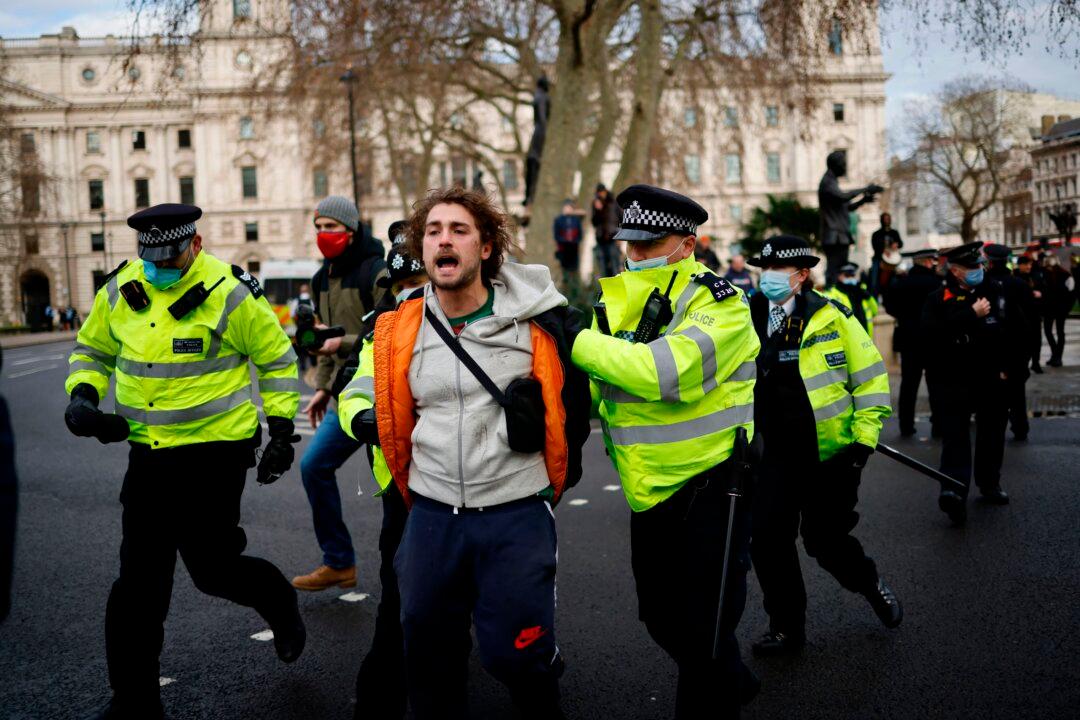Police enforcement of the rules put in place to slow the spread of the CCP virus will be ramped up in the UK during the country’s third national lockdown.
Officers will impose fines more readily, and not knowing the rules will not be accepted as an excuse for breaking them, London’s Metropolitan Police (Met) said in a statement on Wednesday.





